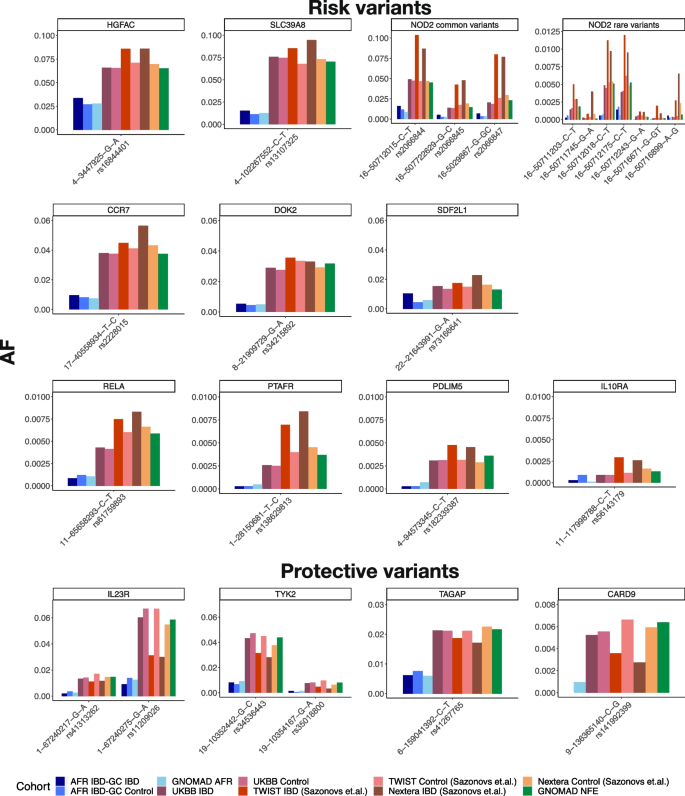2023-11-15 ジョージア工科大学
◆欧州系の個体で見つかった変異は、アフリカ系アメリカ人では少なく、IBDリスクへの寄与も小さかったことが判明しました。研究者は、多様な人口での大規模な遺伝子シーケンシングが、遺伝子研究や治療法の進展に不可欠であると強調しています。
<関連情報>
- https://research.gatech.edu/rare-genetic-spotlight-health-disparities-ibd
- https://genomemedicine.biomedcentral.com/articles/10.1186/s13073-023-01244-w
炎症性腸疾患への希少変異の寄与における混血の役割 The role of admixture in the rare variant contribution to inflammatory bowel disease
Courtney Astore,Shivam Sharma,Sini Nagpal,NIDDK IBD Genetics Consortium,David J. Cutler,John D. Rioux,Judy H. Cho,Dermot P. B. McGovern,Steven R. Brant,Subra Kugathasan,I. King Jordan & Greg Gibson
Genome Medicine Published:15 November 2023
DOI:https://doi.org/10.1186/s13073-023-01244-w

Abstract
Background
Identification of rare variants involved in complex, polygenic diseases like Crohn’s disease (CD) has accelerated with the introduction of whole exome/genome sequencing association studies. Rare variants can be used in both diagnostic and therapeutic assessments; however, since they are likely to be restricted to specific ancestry groups, their contributions to risk assessment need to be evaluated outside the discovery population. Prior studies implied that the three known rare variants in NOD2 are absent in West African and Asian populations and only contribute in African Americans via admixture.
Methods
Whole genome sequencing (WGS) data from 3418 African American individuals, 1774 inflammatory bowel disease (IBD) cases, and 1644 controls were used to assess odds ratios and allele frequencies (AF), as well as haplotype-specific ancestral origins of European-derived CD variants discovered in a large exome-wide association study. Local and global ancestry was performed to assess the contribution of admixture to IBD contrasting European and African American cohorts.
Results
Twenty-five rare variants associated with CD in European discovery cohorts are typically five-fold lower frequency in African Americans. Correspondingly, where comparisons could be made, the rare variants were found to have a predicted four-fold reduced burden for IBD in African Americans, when compared to European individuals. Almost all of the rare CD European variants were found on European haplotypes in the African American cohort, implying that they contribute to disease risk in African Americans primarily due to recent admixture. In addition, proportion of European ancestry correlates the number of rare CD European variants each African American individual carry, as well as their polygenic risk of disease. Similar findings were observed for 23 mutations affecting 10 other common complex diseases for which the rare variants were discovered in European cohorts.
Conclusions
European-derived Crohn’s disease rare variants are even more rare in African Americans and contribute to disease risk mainly due to admixture, which needs to be accounted for when performing cross-ancestry genetic assessments.


